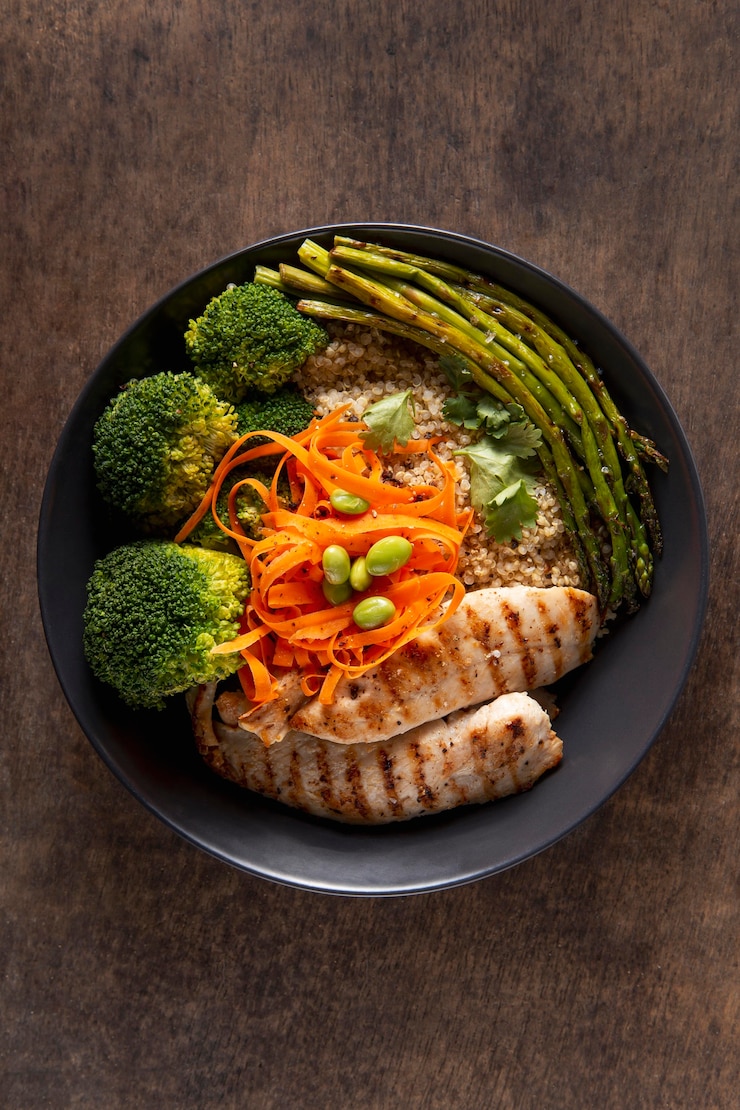
Protein is essential for your body’s growth, repair, and overall functioning. Getting enough protein daily is crucial, and there are plenty of ways to include it in your diet. How much protein you need depends on your weight, age, gender, and general health. Fortunately, you can meet your protein needs by eating a variety of foods from both plant and animal sources, such as meat, fish, eggs, dairy products, seeds, nuts, beans, and lentils.
If you’re short on time, you can try Vegan Way plant-based protein powder as a healthy breakfast option or a quick snack. This powder is made with heart-friendly pea and brown rice protein, which not only supports your health but also keeps your heart happy.
Proteins are often referred to as the “building blocks of life” because they play a key role in many bodily processes. They help develop and repair muscles, act as enzymes and hormones, and serve as transporters, buffers, and regulators for various functions. Factors like age, gender, weight, and lifestyle influence the amount of protein you need. It might vary from 10–15 grams per snack to over 30 grams per meal. Dietitians can help customize protein intake based on your specific needs.
A simple guideline for assessing protein intake is how full you feel after meals and between them. If you’re struggling to recover from exercise, illness, or injury, or feel constantly hungry, you may need to increase your protein intake or adjust when you consume it. High-protein diets can also support weight loss by reducing hunger, but it’s important to eat the right kinds of protein.
Here’s a list of protein-rich foods that can help you stay healthy and energized:
– Eggs: A single large egg contains about 7 grams of protein along with essential vitamins, minerals, and iron. Eating one or two eggs daily, prepared boiled, steamed, or partially baked, is a great way to maintain a balanced diet.
– Almonds: Packed with fiber, vitamin E, manganese, and magnesium, almonds are a tasty source of protein, providing 28 grams of protein in a 280-gram serving. Enjoy them dry or soaked in water, with a daily recommendation of 10–12 almonds.
– Milk: A popular and convenient source of protein, milk provides 276–352 milligrams of protein per 300 ml, depending on the type (skimmed, whole, or low-fat). For best results, drink boiled milk without adding sugar or sweeteners. Adults should aim for a daily intake of 200 ml (one glass).
– Granola: This high-fiber breakfast choice is filling and nutritious. A single granola bar can contain around 100 grams of protein. You can enjoy granola with milk or in bar form, with a recommended serving of one-quarter to one cup daily.
– Oats: Rich in carbs, fiber, and beta-glucan, oats are great for vegetarians or vegans looking for a protein boost. A large serving provides 11.1 grams of protein. For optimal nutrition, pair oats with milk and stick to a medium-sized cup per day.
– Chicken Breast: Known for its high protein content, chicken breast also contains essential vitamins and minerals such as B vitamins, vitamin D, and zinc. It provides 15 grams of protein per 100 grams and can be enjoyed roasted or grilled. For a leaner option, eat chicken breast without the skin, with one piece consumed twice a day.
– Yogurt: A dairy product rich in calcium, phosphorus, potassium, and vitamins B2 and B12, yogurt provides about 10 grams of protein per 100 grams. Choose plain, low-fat yogurt without added sweeteners, with one cup daily being optimal.
– Quinoa: This nutrient-packed plant food is gluten-free and contains essential amino acids and proteins. There are 310 milligrams of protein in 29 milliliters of quinoa. For maximum health benefits, eat plain quinoa without extra sugar or toppings.
– Pumpkin Seeds: A protein-packed snack, pumpkin seeds are full of iron, magnesium, and zinc. A 200-gram serving provides about 20 grams of protein.
– Broccoli: Known for its high levels of vitamin C, vitamin K, fiber, and potassium, broccoli also boasts bioactive compounds that may help prevent cancer. It offers 3 grams of protein per every 91 grams consumed.
The Bottom Line
Your body relies on protein to build and maintain muscle, support bodily functions, and provide a steady supply of amino acids. These amino acids are vital because your body cannot produce them on its own. A protein-rich diet helps you maintain muscle mass, build strength, and avoid muscle loss during weight loss efforts. Including a variety of protein sources in your meals ensures your body functions optimally and stays strong.